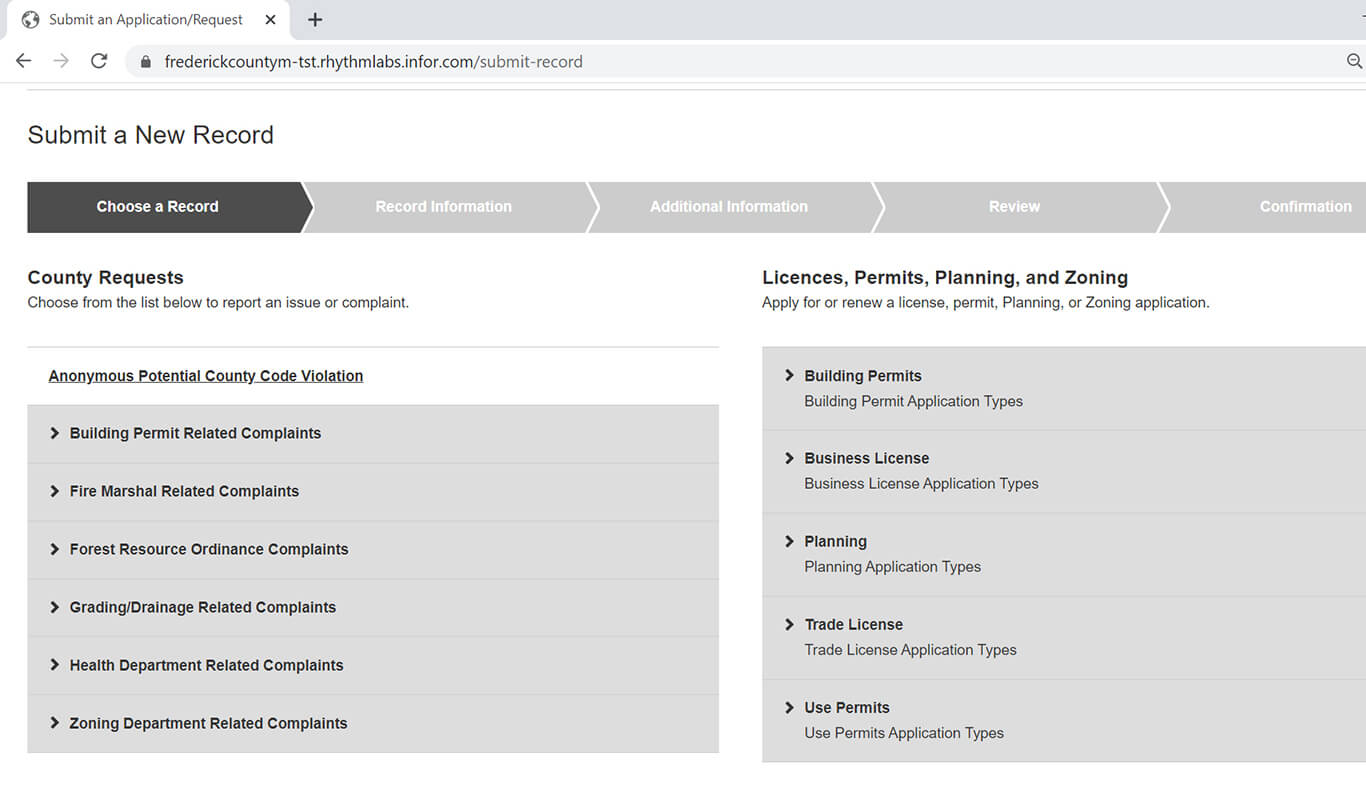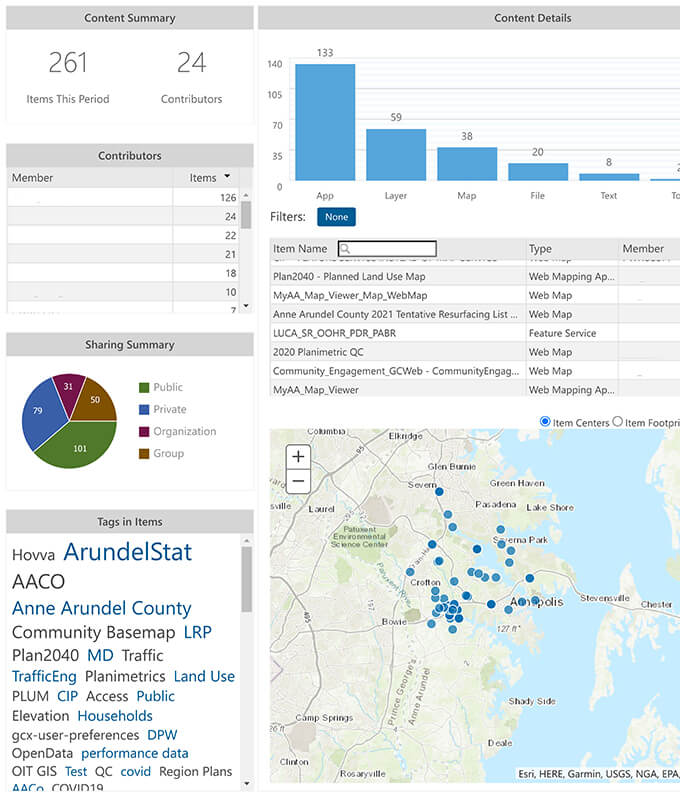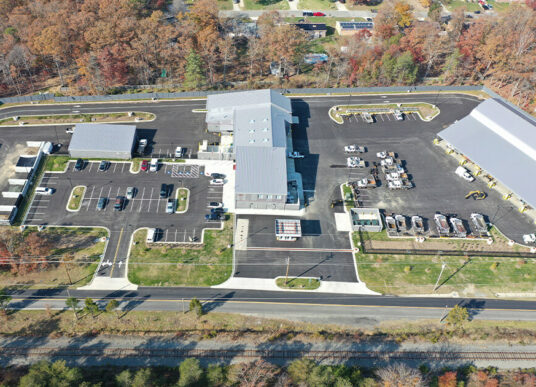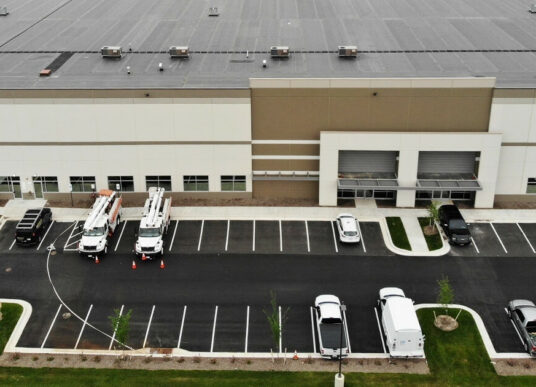As the population increases and communities expand, municipalities are responsible for managing a finite amount of physical resources to support the jurisdictional growth.
Established ordinances, codes, and statutes assist with asset management, but a coordinated approach is required to meet the present and future needs of residents and businesses. A land management system helps simplify the process by tracking data, managing permits, and recording and reporting system information. Frederick County, Maryland, hired KCI to perform project management services related to the upgrade of its current land management system. This technology’s timely implementation helped meet the county’s evolving needs and ensured business continuity during the COVID-19 pandemic.
Municipalities traditionally rely on a paper process to manage building permits, field inspections, community events, and business licenses. This method requires extensive storage space for hard-copy documentation and causes process inefficiencies within the required review and revision cycles. In 2002, Frederick County automated its approach and implemented a system that electronically organized details collected from hard copy applications. The county’s original solution offered substantial customization opportunities, which they leveraged for almost 20 years to support the community’s growth. Significant customization, however, can present challenges and misalignments during future upgrades. In collaboration with the original system developers and KCI, the county decided to implement a fully electronic online land management system that would support land management processes from application through permit issuance.

The centralized database allows for increased communication and coordination within the municipality, as information can be accessed and shared across departments.
As the county project manager, KCI’s Land Management team coordinated directly with the software developer to review system requirements, lead team activities, and ensure that stakeholders’ needs were met. The county had a large and diverse group of invested stakeholders, which required our team to manage competing interests. KCI facilitated user sessions and developed approximately 50 workflows for department-specific permitting, planning and inspection applications.
“We were charged with managing scope, cost, and stakeholder expectations as much as overseeing the technical elements of the project,” said senior project manager Dustin Henry. “Subject matter experts, IT personnel, and outside agencies such as the liquor board, fire marshal, and health department, all had varying needs to be considered by the implementation team.”
While out-of-the-box configurations are available, Frederick County wanted to maintain the advanced workflows already in place. Ensuring business process continuity required extensive research and a complete understanding of an application’s lifecycle, including all applicable milestones, reviews, and dependent inspections. Due to the workflows’ complexities, the development process involved a significant amount of customization to ensure it met the outlined business needs.
As the project progressed, our team was asked to provide additional services, including managing the scope, schedule and resourcing of the implementation team, supporting configuration, testing, training and reports. KCI closely managed the schedule, nimbly responded to unforeseen circumstances and challenges, and provided institutional knowledge about existing processes. According to Henry, balancing the county’s need for customization and accommodating individual processes with out-of-the-box configurations was critical to maximize the system’s ability to be patched and upgraded to future versions.
The county’s all-encompassing land management system features integrations between four independent solutions and provides a consistent process and framework for citizens and employees. Supported by a geographic information system (GIS), users can now visualize activities associated with a specific location.

Real-time dashboards provide metrics that help the county, KCI and ROK monitor performance, identify potential issues and address concerns within the could enterprise platform.
Completed in December of 2019, the new system provides a better user experience and enables employees to manage the permitting process without costly delays or interruptions. As all relevant information is housed within the system and accessible via the internet, the county experienced a significant decrease in the time it takes to review applications and issue permits. Additionally, up-to-date project information is available to inspectors on mobile devices, eliminating the need to stop into the office before starting work each day.
The timely upgrade proved invaluable during the COVID-19 pandemic, as many employees began working remotely and citizens were social distancing. Despite the challenging time, the county was able to maintain business as usual. The new system even allowed staff to complete inspections virtually without traveling to a site.
“We helped the county improve processes and streamline activities, allowing citizens to complete permitting transactions remotely. Frederick County is one of the select jurisdictions in the state of Maryland whose planning and permitting process is moving along as if COVID never happened.”
– Dustin Henry, GIS Analyst, Senior Project Manager
Each jurisdiction features a unique set of requirements and procedures, and land management systems can be customized to deliver the best solution. Consultants with a previous understanding of local challenges and jurisdictional workflows can leverage that knowledge to prioritize the approach. KCI is already using the lessons learned in Frederick county on another high-profile project. In Baltimore County, KCI supports the design of a land use regulatory automation program, better known as LURA, to consolidate permitting, licensing, and inspection processes. Our team’s previous relationship with the county aided in identifying an appropriate enterprise software solution and developing a multi-year implementation plan. When complete, the system is expected to improve regulatory compliance, transparency, and customer service.



